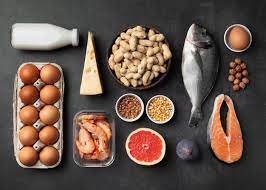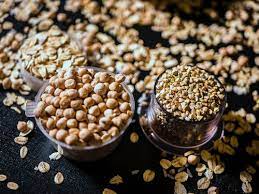Nutrition Plan

Prioritize colorful vegetables and fruits for a diverse range of vitamins, minerals, and antioxidants in your daily meals.

Include lean protein sources such as poultry, fish, tofu, and legumes to support muscle health and maintain satiety.

Opt for whole grains like quinoa, brown rice, and oats to provide sustained energy and essential fiber for digestive health.

Incorporate healthy fats from sources like avocados, nuts, and olive oil to support heart health and nutrient absorption.

Choose low-fat dairy or dairy alternatives rich in calcium and vitamin D for strong bones and overall bone health.

Stay hydrated with water throughout the day, limiting sugary beverages, to support optimal bodily functions and maintain overall well-being.





